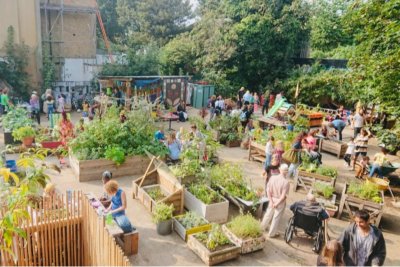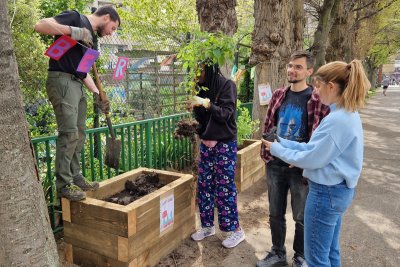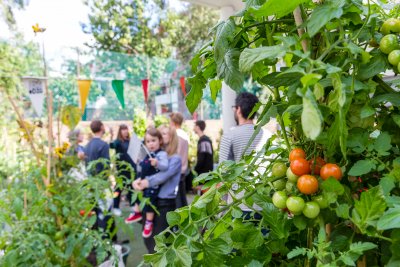News • Sustainable Food Places
The resilience of local food through Covid-19
New research looks at the role local food systems played throughout the pandemic, asking what makes them resilient and how they're viewed by policymakers now.

Researchers from Sheffield University have published a series of reports that look at the response of the local food sector to Covid-19. They ask how the resilience of the local food sector, and of the wider food system, can be strengthened as we go forward.
The researchers identified three headline findings:
- The local food sector showed resilience to the pandemic and contributed to the resilience of the overall UK food systems
- The local food sector has an ambitious vision for transforming the UK food system through relocalisation
- The ambition of the local food sector is stymied by systemic barriers
Two of the reports focused on ‘resilience and transformation’ of the local food sector. The researchers looked at how local food businesses coped during the Covid-19 pandemic, and how their social relations impacted this. They found that the sector had strong cohesion amongst themselves and good connections to other groups, which helped them to adapt and continue their work.
Stephen Jones, Anna Krzywoszynska, and Damian Maye, the authors of the reports, say: "A growing number of papers and reports indicate that local food systems were crucial in ensuring the resilience of communities, providing food access when centralised distribution fell short, and organising and delivering agile emergency food support, often to those community members who were overlooked by centralised responses."
However, it was found that local food businesses struggle to have a wider, transformative impact on the food system, largely due to having a reputation as “a niche middle-class hobby”. The report also describes how there is a lack of support from local and central government for local food systems, which made it harder to cope with the impacts of Covid-19 and limits their ability to influence policy.
A third report, ‘Riding the Waves’, outlines the toll that the pandemic took on people working in the local food sector. On the whole, it was found that their incredible efforts in contributing to the UK’s food security came at the cost of weakened mental health, self-exploitation, and burn-out.
There was a feeling from the local food businesses that the researchers spoke to, that they had ‘plugged the gaps’ in the mainstream food supply, and stepped up when the government’s emergency food provision was faltering, but that their efforts went unrecognised by policymakers. They reported feeling that they were back to square one, despite their efforts, and are again simply a niche ‘alternative’ part of the food system.
"We noted that in the early period of the pandemic our participants felt a surge of optimism and good-will around the local food sector and localised food services. By mid-2021, however, our participants were expressing a disappointment and frustration that the achievements of the local food sector had not been acknowledged. Policy actors were noted for not recognising the contribution of the local food sector... One of our participants was working with a local council to supply food for children as part of the free school meals provision during the pandemic. Instead of this leading to this [local food business] becoming more firmly embedded in the council’s food procurement strategy, however, their services were suddenly discontinued."
The researchers also looked at how the perception of local food may have changed through the pandemic. In general, policy and mainstream reports were found to avoid or cautiously handle the idea of ‘local food’. However, public procurement seems to be broadly well recognised by a range of actors in the food system, local and mainstream, as an important mechanism to shorten food supply chains.
It certainly feels like there is a long way to go for local food systems to get the recognition they deserve in policy. But all hope is not lost. A fourth report outlines a bold vision for what a transformative local food system might look like, and how we could get there, with a set of models to help visualise these ambitions. “The pandemic,” the researchers conclude, “not only substantiated the importance of this sector, it also provided an opportunity to envision a food systems transformation centred on strengthening local food systems.”
Published Tuesday 7 June 2022
Sustainable Food Places: The Sustainable Food Places Network helps people and places share challenges, explore practical solutions and develop best practice on key food issues, so if you are working to drive positive food change or are interested in developing a programme, please do get in touch.





